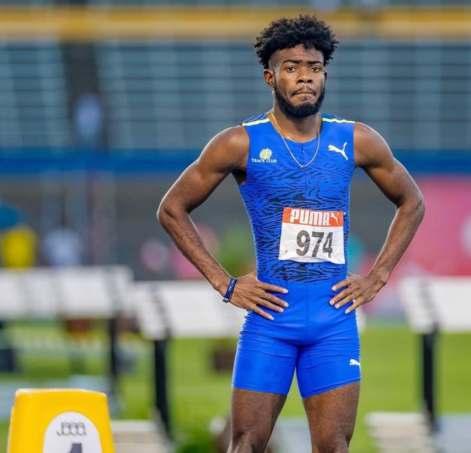
2 minute read
Why do our pro athletes refuse to learn from the mistakes of others?
By Ian Burnett CNW Sports Writer
Proverbs 21, verse 11 of the King James
Advertisement
Authorised Version of The Bible, states:
“When the scorner is punished, the simple is made wise; and when the wise is instructed, he receiveth knowledge ”
For the context of this article, it means that the average person learns from the misdeeds of others, and when one teaches the wise, he acquires knowledge
I have postulated the above passage to say that it is full time professional athletes surround themselves with management teams - as a matter of course - to preside over all their needs while the pros direct their full attention on their field of endeavour
To be more specific, I am alarmed by the recent news of another of our professional athletes being charged by the World AntiDoping Agency (WADA) for a breach of its code
For me, sports in general and track and field athletics, in particular, are replete with athletes erring by not engaging experts to help manage the various aspects of their professional careers
The latest appears to be Mr Christopher Taylor, a standout sprint athlete throughout his secondary school career at Calabar High School He has been steadily rising up the ladder and is poised to assume the mantle of being Jamaica’s leading quarter-miler
He was a finalist (6th) in the 400m at the 2021 Tokyo Olympic Games and 7th at the World Athletics Championships in Eugene, Oregon, USA, last year
Taylor was charged last week for evading, refusing or failing to submit to sample collection last November when he was on the island
If found guilty, Taylor would breach the WADA Code Article 2 3, which states: “Evading, Refusing or Failing to Submit to Sample Collection. The Evading Sample collection, or without compelling justification, refusing or failing to submit to Sample collection after notification as authorized in applicable anti-doping rules ”
Taylor, 23, faces a minimum two-year ban from the sport according to WADA)Anti-
Doping Rule 10 3 1, and a maximum of four years
“For violations of Article 2 3 or Article 2 5, the period of ineligibility shall be four years unless, in the case of failing to submit to Sample collection, the Athlete can establish that the commission of the anti-doping rule violation was not intentional (as defined in Article 10 2 3), in which case the period of ineligibility shall be two years,” the rule states
Obviously, the case has not yet been heard, but there are unconfirmed reports that the athlete was contacted at home by anti-doping officials as he had indicated on his whereabouts form
A sample was not provided, for whatever reason, and the athlete and the doping officials travelled to the Norman Manley International Airport from where he was booked to travel
Again no sample was provided, and it is understood that the doping officials made a copy of his boarding pass to confirm that he was indeed scheduled to travel
Again, it is unclear if he travelled with the blessing of the doping control officers, or of his own volition
But being au fait with the anti-doping regulations is crucial for any professional athlete and Taylor is no different Furthermore, ignorance, it is often said, is no excuse
And that’s why it is so important for professional athletes to arm themselves with expertise to help them navigate the minefields of pro sports








